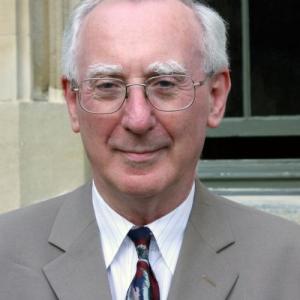Book Presentation of The Contract of Employment
Associated people

On Friday 17 February 2017, a book presentation was held for The Contract of Employment at Brasenose College Oxford. The book is a comprehensive treatise on law of the contract of employment, comprised of chapters by twenty authors, six of whom are members of the Oxford Law Faculty.

After a welcome by the Dean, Professor Anne Davies, the first session was chaired by Sir Nicholas Underhill QC. The participants heard first from Professor Andrew Burrows. Drawing on his extensive expertise in private law, contract law and unjust enrichment, he brought an ‘outsider’s perspective’ to the discussion. His topic was the relationship between statutory regulation and the common law of the contract of employment, also the topic of Professor Davies’ Chapter 4. In particular, he focused upon the controversial trilogy of cases – Johnson v Unisys, Edwards v Chesterfield and Eastwood v Magnox – which examine the common law of wrongful dismissal and its relationship with unfair dismissal, a statutory cause of action which covers overlapping territory in labour law. He argued that common law developments should only be halted where the statute would be rendered unworkable by such evolution, and that, in this particular area, it would have been preferable for the common law to have been revised as Parliamentary action is very unlikely. Professor Lizzie Barmes expressed concerns about the trio of cases that were not based on their constitutional appropriateness or adherence to particular views about the correct relationship between the judiciary and the legislature. Rather, she was extremely concerned about the incoherence and arbitrariness of the decision and their legacy. She argued that coherence must be maintained with employment law, for the ‘insiders’ such as academics and practitioners, and from an external point of view, so that employers and employees can easily understand their rights and responsibilities. To complete the session, Professor Alan Bogg examined the three approaches that could be taken to a question of this kind: a labour law approach, which would view the law as an instrument for the pursuit of collective goals; a private law approach which values philosophical and doctrinal coherence and a public law approach which focuses to a greater extent on the roles of different branches of the government. He observed that much of the disagreement between scholars could be explained through a consideration of which approach they adopt, bringing clarity to the ongoing debate on the topic.

The second session was chaired by Professor Mark Freedland, the general editor of The Contract of Employment. It focused on the future work arising out of the chapters of the book. After giving an excellent exposition of the opening chapters of the book, Dr David Cabrelli put forward a plan of research which will use the normative principles expounded there to develop a more detailed view of the terms implied by law into the contract of employment. Professor Wanjiru Njoya outlined research that she has already commenced on the issue of income inequality, drawing on the concept of ‘a fair exchange’ discussed in Chapter 3 of the book, and noted the many challenges in analysing wages across the workforce. For example, fairness might depend on the gap between the top and the bottom of the labour market, but these groups are paid through different mechanisms so any comparison is difficult. This differentiation, she argued, might also be indicative of masked distinctions between workers with different social statuses. For company law, this is not necessarily problematic, so she observed that thought must be put into framing the issue so that the underlying concerns of labour law can come to the forefront. Professor Jeremias Prassl took the themes of social exclusion raised in his chapter with Dr Einat Albin and suggested that these could be applied to the rapidly-expanding gig economy. He noted that it is important that we recognise the similarities between this insecure form of work and those that have existed in the workforce for decades in order to tackle the problems that it creates with all the tools that are available to labour lawyers. The day’s proceedings were brought to a close by Professor Hugh Collins, who offered his thoughts on the overarching themes that had arisen throughout the discussions.
The editors would like to thank the Faculty of Law for providing funds for the tea break and OUP for their financial support for the drinks reception. Many thanks also go to John Bowers QC, and Brasenose College, for providing a venue of such historic significance to the labour law community as the Oxford college at which Professor Sir Otto Kahn-Freund, the founding father of labour studies in the United Kingdom, held the Chair of Comparative Law.
Philippa Collins




